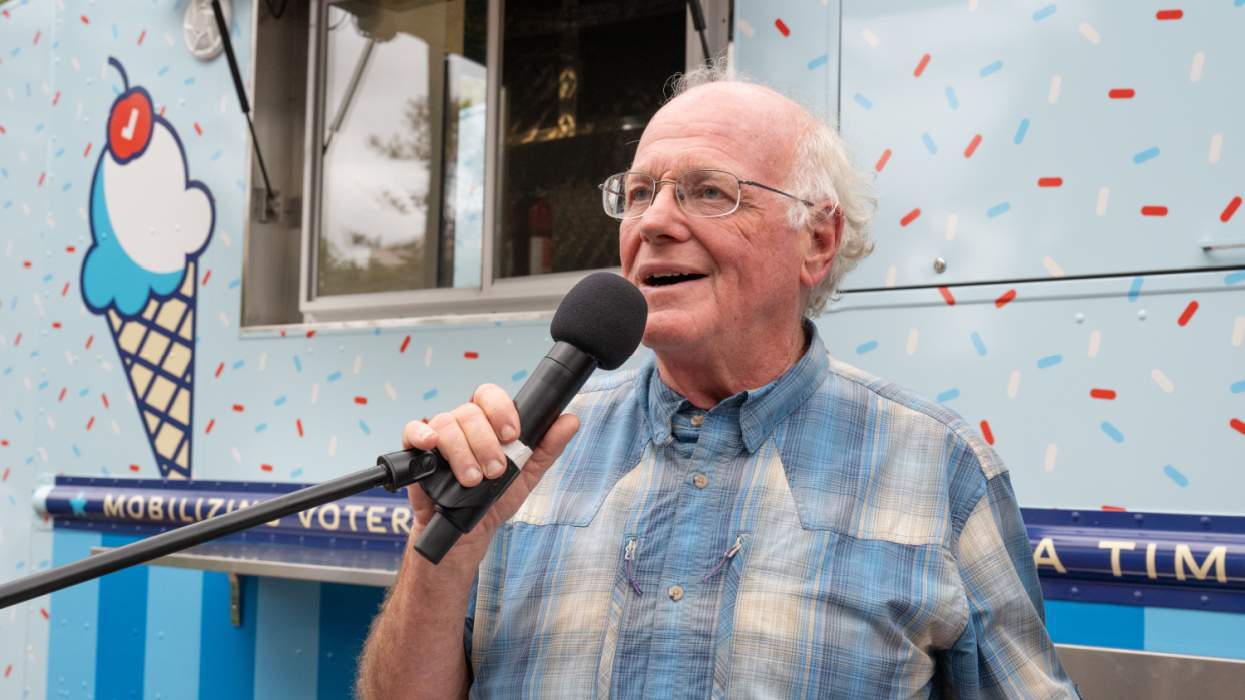A new report from the Williams Institute at the University of California, Los Angeles, School of Law lays out a stark reality for LGBTQ+ immigrants facing mass deportation under President Donald Trump’s second administration. The report, “Impact of Mass Deportations on LGBT People,” warns that up to 3 percent of non-U.S. citizens living in the United States, or 640,000 people, are LGBTQ+. This includes as many as 288,000 undocumented immigrants who are now at heightened risk.
Keep up with the latest in LGBTQ+ news and politics. Sign up for The Advocate's email newsletter.
Within days of retaking office, Trump reinstated and expanded harsh immigration policies, including the “Remain in Mexico” policy, efforts to end the constitutional protection of birthright citizenship, and aggressive Immigration and Customs Enforcement raids in sensitive locations like schools, churches, and medical facilities. His administration quickly deployed troops to the border and launched mass deportation operations using military aircraft.
“Consensual same-sex relations are criminalized in 61 countries around the world, and in at least seven of those, they can be punishable by death,” lead author Andrew Flores, a distinguished visiting scholar at the Williams Institute, said in a statement. “Policies leading to increased deportations could place LGBT individuals from countries that criminalize their identities and relationships at risk of violence and unsafe conditions.”
A 2021 Williams Institute study found that between 2012 and 2017, at least 11,400 LGBTQ+ people sought asylum in the U.S., with nearly all claims (98.4 percent) resulting in a positive determination of credible fear. Many of these applicants came from Central America’s Northern Triangle — El Salvador, Honduras, and Guatemala — where LGBTQ+ individuals face extreme violence, including targeted killings and gang-related persecution.
It comes as El Salvador has proposed an offer to house deported people, including those convicted of crimes, in its controversial mega-prison, the Center for the Confinement of Terrorism. The facility, known for its extreme conditions, lacks rehabilitation programs and has been condemned by human rights organizations for its inhumane treatment of inmates. U.S. Secretary of State Marco Rubio called El Salvador’s proposal “extraordinary,” though legal experts question its feasibility and legality, Time reports.
Even before deportation, LGBTQ+ immigrants face immense hardships in detention centers. Reports document denial of medical care, placement in solitary confinement, and high rates of sexual and physical violence. Transgender detainees have been denied hormone treatments, and people living with HIV have had their medications withheld.
“Increases in deportations and racialized policing adversely affect the health and well-being of already vulnerable immigrant communities,” said study author Laurel D. Sprague, research director at the Williams Institute. “Policies that permit ICE to arrest immigrants in sensitive locations such as churches and schools will likely result in greater disparities in well-being and further avoidance of schools, medical facilities, and police protection services.”
















Charlie Kirk DID say stoning gay people was the 'perfect law' — and these other heinous quotes
These are some of his worst comments about LGBTQ+ people made by Charlie Kirk.